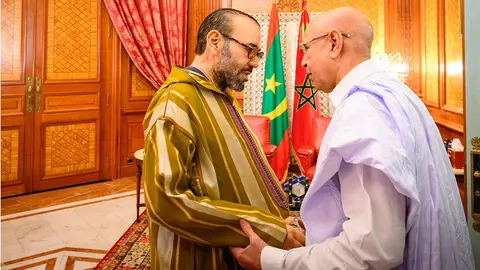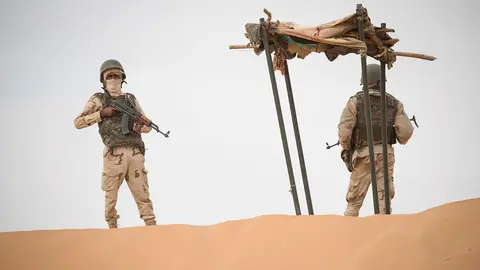Mauritania's military reshuffle suggests a strategic shift towards distancing itself from Algeria
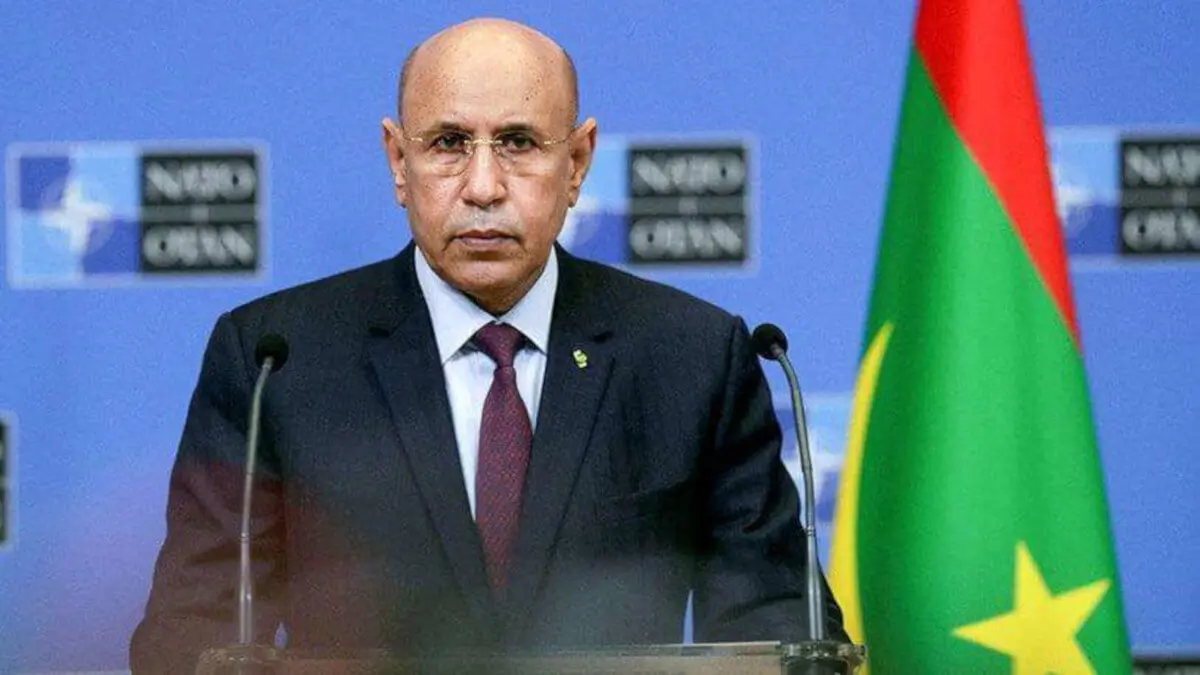
Mauritanian President Mohamed Ould Ghazouani has carried out a major reshuffle of the country's military and security leadership, appointing General Mohamed Vall Ould Raïs as the new chief of staff of the armed forces in a series of recently signed decrees.
The general, who until now served as deputy chief of staff, assumes the post in what analysts consider the most significant reshuffle in the Mauritanian military hierarchy.
These measures, which include the retirement of Lieutenant General Mokhtar Bella Chaabane and six other key appointments in the defence and security sectors, are a direct response to Algeria's increasing provocations and attempts to destabilise regional stability.
In this regard, it is worth noting the incursion of Algerian military forces into Mauritanian territory - initially 8 kilometres, although some sources say it reached 90 kilometres - an incident that coincided with President Ould Ghazouani's recent unofficial visit to Morocco.
It has been suggested that these incursions were accompanied by attempts to influence political decisions in Nouakchott, raising concerns about possible interference in regional affairs by Algiers.
Moreover, this massive restructuring of the military hierarchy comes at a particularly critical time for Mauritania, a country that has historically faced significant political instability characterised by several coups d'état. Mauritania has had eight presidents since independence in 1960, most of whom came to power by force, highlighting the instability of political power in the country.

These appointments reflect a clear strategic realignment with new leadership in key security posts, including those in charge of external intelligence and border control. The recent border violation by the Algerian armed forces has revealed their aggressive posture in the region. Meanwhile, the increasing strengthening of cooperation between Mauritania and Morocco has forced a thorough revision of border security protocols.
On the other hand, these changes are also interpreted as an attempt by President Ould Ghazouani to preserve institutional stability while renewing military leadership.
Another appointment, that of General Sidou Samba Dia as head of external intelligence, is seen as a direct response to Algerian infiltration attempts. The reshuffle marks a decisive distancing from Algerian influence, which could isolate both Algeria and its proxy, the Polisario Front, in regional affairs.
On several occasions, Algiers has tried to pressure Mauritania against Morocco. However, as Sheikhani Ould Sheikh, president of the Moroccan-Mauritanian Association for the Defence of Maghreb Unity, points out, both countries look ‘positively to the future’, assuring that ‘there is no place for those who disturb this Maghreb joy’, according to Morocco World News.
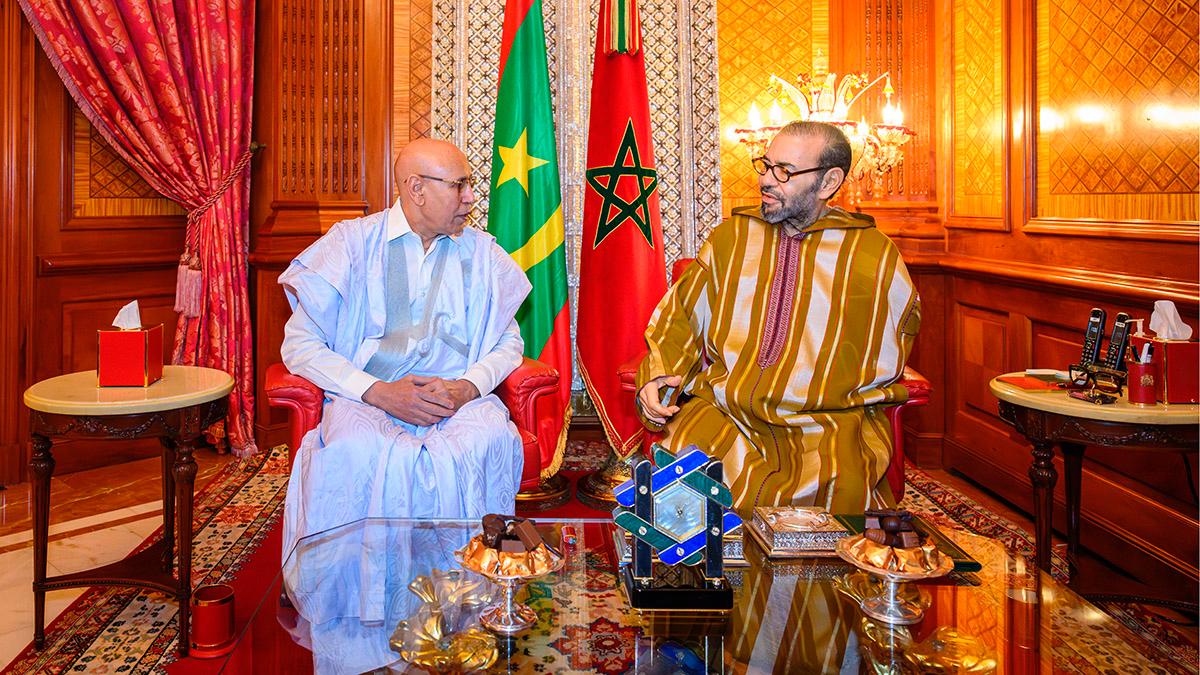
The appointment of General Sidou Samba Dia as head of external intelligence is particularly relevant given Mauritania's complex geopolitical position and potential role in the emerging ‘3+3’ regional bloc (Morocco, Mauritania, Senegal, Portugal, Spain, France), an initiative that significantly excludes Algeria.
The appointments, especially in the intelligence and border security sectors, underline not only Mauritania's commitment to counter Algerian interference, but also strengthen ties with Rabat through strategic initiatives such as the Nigeria-Morocco gas pipeline and the development of the Atlantic port of Dakhla.
Furthermore, the appointment of Colonel Mohamed El-Amin Mohamed Ablaal as commander of the Sahel Defence College reinforces Mauritania's commitment to regional security coordination. This move comes against a backdrop of growing instability in the Sahel area, especially in northern Mali, where a security vacuum and the proliferation of armed militias pose direct threats to Mauritania's borders.
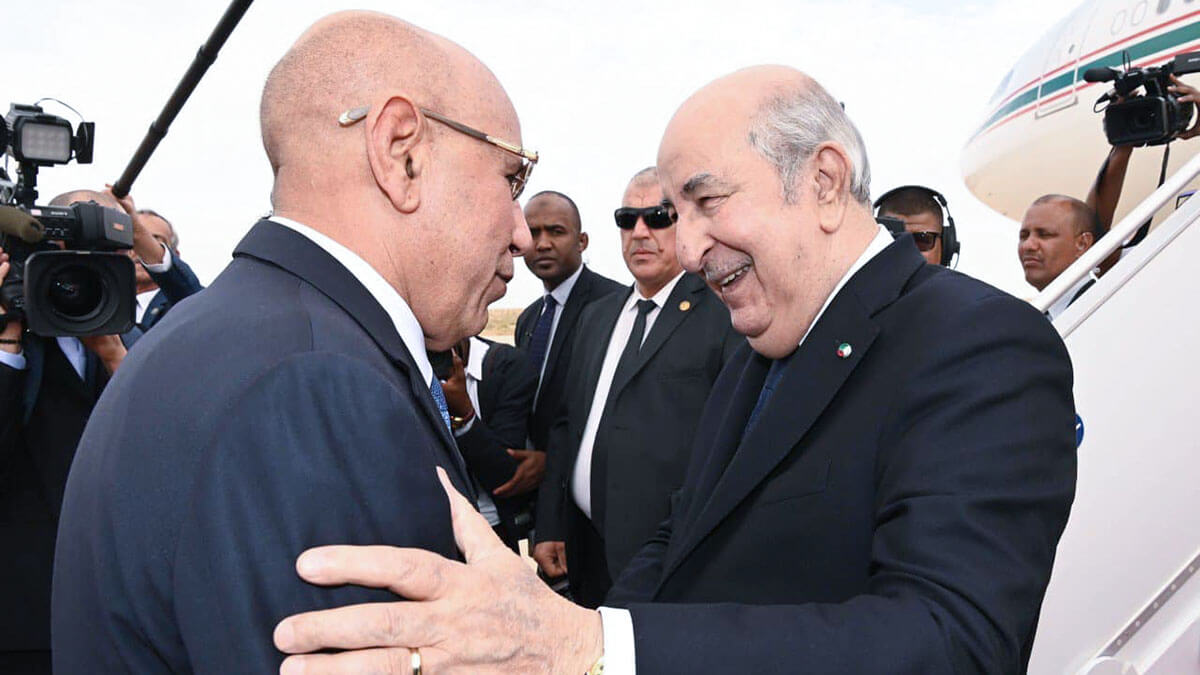
The new military leadership is expected to strengthen Mauritania's defensive capabilities along its most vulnerable border areas, while preserving strategic cooperation with neighbouring countries, consolidating Mauritania as a key link between the Sahel region and North Africa.
Within the Sahel, the situation in Mali stands out, as it has also had to deal with Algerian interference. In August, Mali's government spokesperson condemned ‘the increasing number of hostile acts, cases of interference and actions interfering in Mali's internal affairs’ by Algiers.
This criticism intensified when a senior Malian official directly challenged Algeria's credibility, stating that ‘Algeria has no authority to lecture Mali on human rights or international law’, pointing to Algeria's questionable human rights record and its alleged support for armed groups in the Sahel region.

